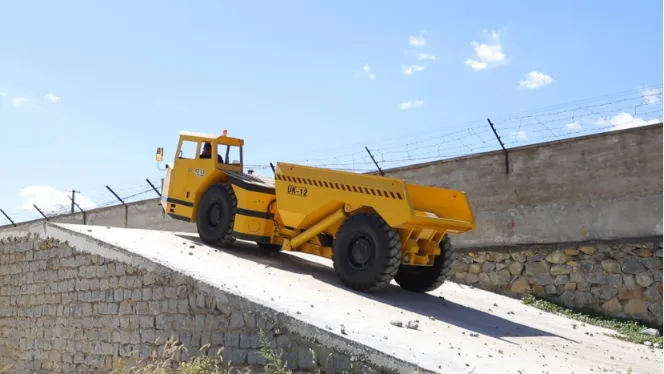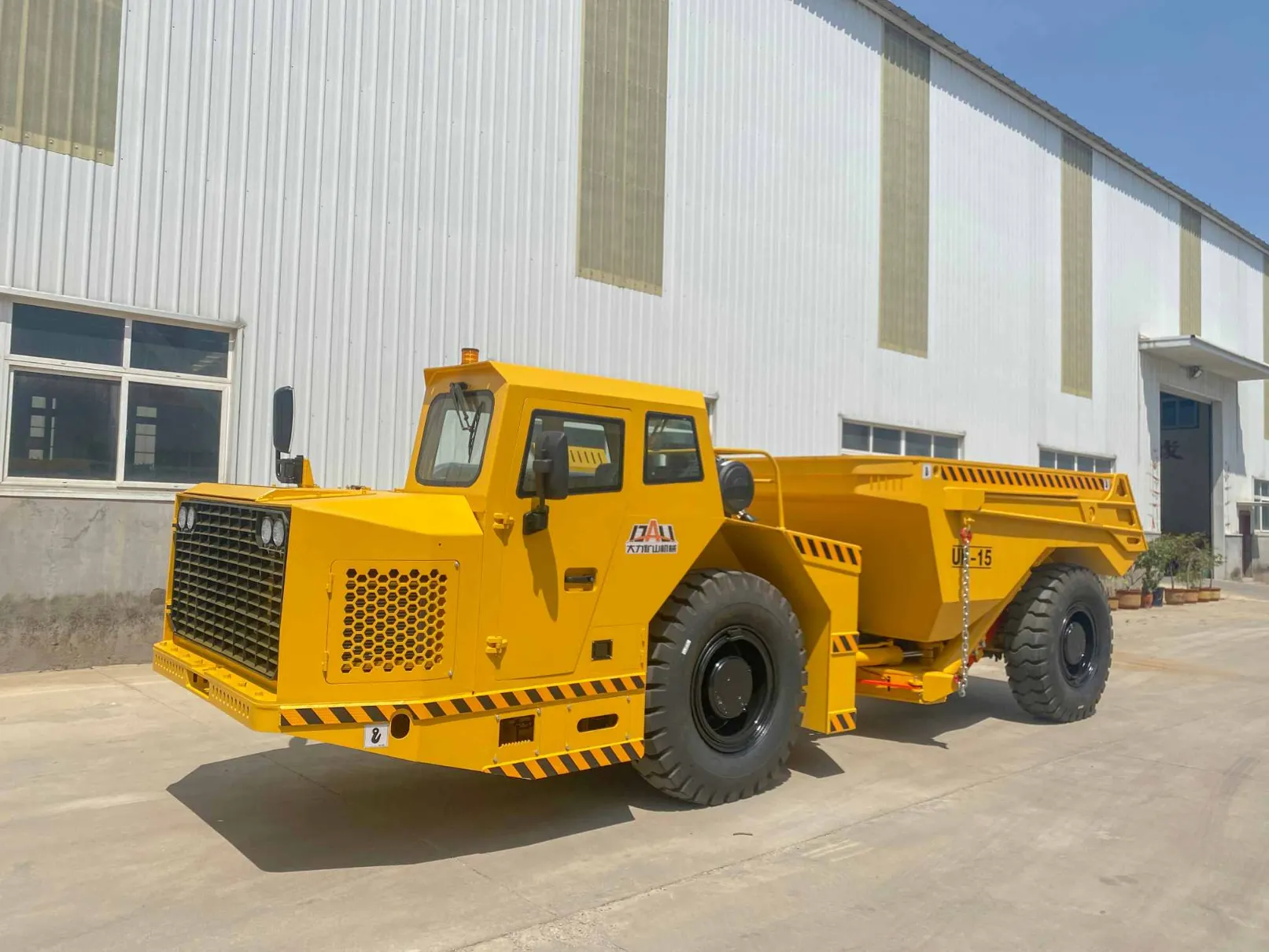Emergency Braking and Safety Cab Systems for Underground Truck Operators

Underground mining pushes equipment to the limits. Trucks haul heavy loads through tight spaces. Safety systems keep operators alive and operations running. This post dives into why these features matter and how they work in real setups.
Why Safety Systems Are Critical in Underground Mining
Mining below ground isn’t like surface work. Trucks face constant risks. Operators deal with dust, poor light, and steep drops. Strong safety setups cut down on mishaps.
Unique Challenges of Underground Truck Operations
Steep tunnels make stopping tough. Narrow paths limit turns. Uneven floors jar everything. Heavy loads add stress to brakes. Trucks must handle tons of ore without tipping. For instance, small mines might use trucks with 15-30 ton capacities for compact spots. Larger operations need 40-80 ton beasts for longer hauls. Matching truck size to mine scale avoids overloads and boosts safety.
Frequent stops and starts wear parts fast. Poor ventilation adds hazards from fumes. Electric powered trucks help here with zero emissions, slashing ventilation needs. But they require solid charging spots.
Common Causes of Accidents in Underground Mining
Brake failures top the list. Human slips happen too. Limited visibility hides dangers. Equipment wears out if not checked. Maintenance gaps lead to breakdowns. Collisions or rollovers occur in tight spots. Diesel engines, with their high power for heavy loads, bring higher emissions and ventilation demands. That can fog up air quality, raising risks. Switching to hybrids mixes diesel strength with electric perks, like lower heat.
Battery limits in electrics might strand a truck mid-shift. Plan for that.
Emergency Braking Systems in Modern Underground Trucks
Brakes aren’t just pedals anymore. Modern tech stops trucks fast and safe. From hydraulics to sensors, these systems save lives.
Hydraulic and Pneumatic Brake Innovations
Hydraulic brakes boost stopping power under load. Fluid pressure grips hard. Pneumatic systems use air for reliability in dust. They hold steady on slopes. Advanced hydraulics cut response time. That matters when hauling 80 tons downhill.
Automatic and Sensor Based Braking
Sensors spot trouble ahead. Collision detection kicks in brakes automatically. No waiting for the operator. On steep grades, this reduces slips from error. Trucks like those from Dali integrate these for underground hauls.
Regenerative and Retardation Systems
Electric retarders ease wear on main brakes. They slow trucks by turning motion into energy. Heat management keeps things cool. In electric trucks, this recovers power, extending range. Less brake fade means safer stops. Dali’s UK-15 model uses such tech for efficient ops.
Regeneration also ties into hybrid setups, blending diesel’s range with electric efficiency.

Safety Cab Systems for Operator Protection
Cabs shield operators from chaos. Reinforced builds and smart monitors make the difference. Comfort keeps focus sharp.
Reinforced Cab Structures
Impact resistant materials guard against rolls or hits. Steel frames absorb shocks. Ergonomic layouts cut fatigue. Dali trucks feature these for underground durability.
Advanced Monitoring and Control Systems
Real-time data tracks truck stats and slopes. Alerts tie into brakes. Operators get warnings early. Integration spots issues like low air pressure in pneumatics.
Operator Comfort and Safety Features
Adjustable seats ease long shifts. Better visibility with cameras helps. Vibration dampers reduce jolts. Harnesses and escape hatches add layers. In poor vent areas, electric engines lower heat, making cabs cooler.
Don’t overlook how small things, like seat adjustments, prevent back strain over time.
Integration of Braking and Cab Safety
Systems don’t work alone. Brakes and cabs team up for full protection. Smart links minimize harm.
Coordinated Safety Systems
Brakes engage while cabs brace for impact. Design synergy stops disasters. Sensors feed data to both. In Dali setups, this coordination handles steep mines well.
Predictive Maintenance and Sensor Analytics
Sensors flag brake wear early. Cab monitors check components. Fix issues before failure. This prevents downtime. For engines, diesel’s high output needs regular checks, unlike electrics with fewer moving parts.
Hybrid options balance maintenance loads.
Case Studies and Industry Applications
Real world use shows what works. Dali trucks shine in tough spots. Global practices offer lessons.
Dali Trucks in Underground Safety Operations
Dali, a Chinese maker from Yantai since 1998, builds solid underground trucks. Their UK-6 and UK-15 models handle compact turns with high capacity. In operations, emergency brakes cut collision risks. Operators report smoother stops on loads up to 15 tons. Metrics show less wear from regenerative systems. One site noted 20% fewer incidents after upgrades.
Feedback highlights reliability in deep projects.
Global Best Practices
Dali systems match international standards like ISO for cabs. In steep slope mines, like Canadian ops, electric trucks reduce emissions for better air. Lessons include pairing hydraulics with sensors. Comparing to Cat trucks, Dali’s compact designs suit narrow tunnels. Long hauls benefit from hybrid engines, blending pros without full cons.
Conclusion
Emergency braking and cab systems transform underground mining. Innovations like sensors and reinforcements cut risks. Operator safety drives efficiency. Dali’s trucks pack these techs for safer hauls. Choose wisely—match capacities, pick efficient engines. It all adds up to fewer accidents and smoother ops.
FAQ
Q1: What makes emergency braking essential for underground trucks?
These systems stop heavy loads fast in tight spaces, preventing collisions on steep slopes.
Q2: How do safety cabs protect operators?
Reinforced structures shield from impacts, while monitors and comfort features keep focus high and reduce fatigue.
Q3: Are electric engines better for underground safety?
Yes, they cut emissions and ventilation needs, but watch for battery limits and charging setup.
Q4: What capacity should trucks have for small mines?
Aim for 15-30 tons; they’re compact and efficient without overload risks.
Q5: How do Dali trucks compare in safety?
Their models integrate advanced brakes and cabs, matching global standards with real world reliability in deep ops.
About Us
Qixia Dali Mining Machinery Co., Ltd was established in 1998, located in Yantai City.
The company is mainly engaged in the design, development, production, installation and training of underground mine equipment and ore processing equipment, spare parts supply and sales.
MoreContact Us
- Xinbang Rd, Private Economy Park, Qixia, Shandong Province, China
- +86 135 5307 3459
- ytdali@ytdali.com
 +86 13553073459
+86 13553073459
+86 13553073459
+86 13553073459








